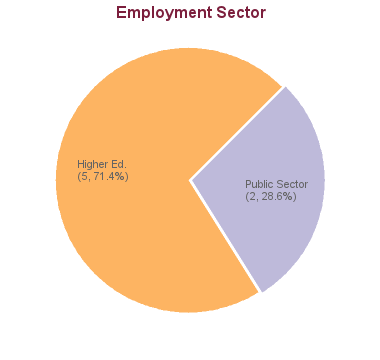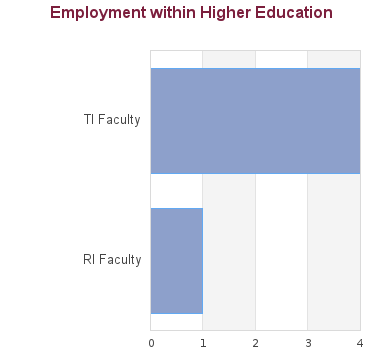Doctor of Philosophy in Social Work (PhD)
Canadian Immigration Updates
Review details about the recently announced changes to study and work permits that apply to master’s and doctoral degree students. Read more
Overview
The PhD in Social Work at UBC is a research degree. Built around a small number of common courses, the program draws on the diverse range of courses available across the campus to advance the student's individualized plan of study. Part-time Doctoral Classification is available for domestic students.
What makes the program unique?
Our students come from around the world and are supervised by faculty with expertise in their particular field of study. No student is admitted without the commitment of a designated supervisor.
Quick Facts
Program Enquiries
Contact the program
Admission Information & Requirements
1) Check Eligibility
Minimum Academic Requirements
The Faculty of Graduate and Postdoctoral Studies establishes the minimum admission requirements common to all applicants, usually a minimum overall average in the B+ range (76% at UBC). The graduate program that you are applying to may have additional requirements. Please review the specific requirements for applicants with credentials from institutions in:
Each program may set higher academic minimum requirements. Please review the program website carefully to understand the program requirements. Meeting the minimum requirements does not guarantee admission as it is a competitive process.
English Language Test
Applicants from a university outside Canada in which English is not the primary language of instruction must provide results of an English language proficiency examination as part of their application. Tests must have been taken within the last 24 months at the time of submission of your application.
Minimum requirements for the two most common English language proficiency tests to apply to this program are listed below:
TOEFL: Test of English as a Foreign Language - internet-based
Overall score requirement: 93
Reading
22
Writing
21
Speaking
21
Listening
22
IELTS: International English Language Testing System
Overall score requirement: 6.5
Reading
6.0
Writing
6.0
Speaking
6.0
Listening
6.0
Other Test Scores
Some programs require additional test scores such as the Graduate Record Examination (GRE) or the Graduate Management Test (GMAT). The requirements for this program are:
The GRE is not required.
2) Meet Deadlines
3) Prepare Application
Transcripts
All applicants have to submit transcripts from all past post-secondary study. Document submission requirements depend on whether your institution of study is within Canada or outside of Canada.
Letters of Reference
A minimum of three references are required for application to graduate programs at UBC. References should be requested from individuals who are prepared to provide a report on your academic ability and qualifications.
Statement of Interest
Many programs require a statement of interest, sometimes called a "statement of intent", "description of research interests" or something similar.
Supervision
Students in research-based programs usually require a faculty member to function as their thesis supervisor. Please follow the instructions provided by each program whether applicants should contact faculty members.
Instructions regarding thesis supervisor contact for Doctor of Philosophy in Social Work (PhD)
Citizenship Verification
Permanent Residents of Canada must provide a clear photocopy of both sides of the Permanent Resident card.
4) Apply Online
All applicants must complete an online application form and pay the application fee to be considered for admission to UBC.
Tuition & Financial Support
Tuition
| Fees | Canadian Citizen / Permanent Resident / Refugee / Diplomat | International |
|---|---|---|
| Application Fee | $116.25 | $168.25 |
| Tuition * | ||
| Installments per year | 3 | 3 |
| Tuition per installment | $1,875.34 | $3,294.66 |
| Tuition per year (plus annual increase, usually 2%-5%) | $5,626.02 | $9,883.98 |
| Int. Tuition Award (ITA) per year (if eligible) | $3,200.00 (-) | |
| Other Fees and Costs | ||
| Student Fees (yearly) | $1,144.10 (approx.) | |
| Costs of living | Estimate your costs of living with our interactive tool in order to start developing a financial plan for your graduate studies. | |
All fees for the year are subject to adjustment and UBC reserves the right to change any fees without notice at any time, including tuition and student fees. Tuition fees are reviewed annually by the UBC Board of Governors. In recent years, tuition increases have been 2% for continuing domestic students and between 2% and 5% for continuing international students. New students may see higher increases in tuition. Admitted students who defer their admission are subject to the potentially higher tuition fees for incoming students effective at the later program start date. In case of a discrepancy between this webpage and the UBC Calendar, the UBC Calendar entry will be held to be correct.
Financial Support
Applicants to UBC have access to a variety of funding options, including merit-based (i.e. based on your academic performance) and need-based (i.e. based on your financial situation) opportunities.
Program Funding Packages
From September 2024 all full-time students in UBC-Vancouver PhD programs will be provided with a funding package of at least $24,000 for each of the first four years of their PhD. The funding package may consist of any combination of internal or external awards, teaching-related work, research assistantships, and graduate academic assistantships. Please note that many graduate programs provide funding packages that are substantially greater than $24,000 per year. Please check with your prospective graduate program for specific details of the funding provided to its PhD students.
Average Funding
- 8 students received Teaching Assistantships. Average TA funding based on 8 students was $5,177.
- 9 students received Research Assistantships. Average RA funding based on 9 students was $12,743.
- 4 students received Academic Assistantships. Average AA funding based on 4 students was $15,094.
- 12 students received internal awards. Average internal award funding based on 12 students was $12,483.
- 2 students received external awards. Average external award funding based on 2 students was $35,000.
Review methodology
Scholarships & awards (merit-based funding)
All applicants are encouraged to review the awards listing to identify potential opportunities to fund their graduate education. The database lists merit-based scholarships and awards and allows for filtering by various criteria, such as domestic vs. international or degree level.
Graduate Research Assistantships (GRA)
Many professors are able to provide Research Assistantships (GRA) from their research grants to support full-time graduate students studying under their supervision. The duties constitute part of the student's graduate degree requirements. A Graduate Research Assistantship is considered a form of fellowship for a period of graduate study and is therefore not covered by a collective agreement. Stipends vary widely, and are dependent on the field of study and the type of research grant from which the assistantship is being funded.
Graduate Teaching Assistantships (GTA)
Graduate programs may have Teaching Assistantships available for registered full-time graduate students. Full teaching assistantships involve 12 hours work per week in preparation, lecturing, or laboratory instruction although many graduate programs offer partial TA appointments at less than 12 hours per week. Teaching assistantship rates are set by collective bargaining between the University and the Teaching Assistants' Union.
Graduate Academic Assistantships (GAA)
Academic Assistantships are employment opportunities to perform work that is relevant to the university or to an individual faculty member, but not to support the student’s graduate research and thesis. Wages are considered regular earnings and when paid monthly, include vacation pay.
Financial aid (need-based funding)
Canadian and US applicants may qualify for governmental loans to finance their studies. Please review eligibility and types of loans.
All students may be able to access private sector or bank loans.
Foreign government scholarships
Many foreign governments provide support to their citizens in pursuing education abroad. International applicants should check the various governmental resources in their home country, such as the Department of Education, for available scholarships.
Working while studying
The possibility to pursue work to supplement income may depend on the demands the program has on students. It should be carefully weighed if work leads to prolonged program durations or whether work placements can be meaningfully embedded into a program.
International students enrolled as full-time students with a valid study permit can work on campus for unlimited hours and work off-campus for no more than 24 hours a week during academic sessions.
A good starting point to explore student jobs is the UBC Work Learn program or a Co-Op placement.
Tax credits and RRSP withdrawals
Students with taxable income in Canada may be able to claim federal or provincial tax credits.
Canadian residents with RRSP accounts may be able to use the Lifelong Learning Plan (LLP) which allows students to withdraw amounts from their registered retirement savings plan (RRSPs) to finance full-time training or education for themselves or their partner.
Please review Filing taxes in Canada on the student services website for more information.
Cost Estimator
Applicants have access to the cost estimator to develop a financial plan that takes into account various income sources and expenses.
Career Outcomes
8 students graduated between 2005 and 2013. Of these, career information was obtained for 7 alumni (based on research conducted between Feb-May 2016):


RI (Research-Intensive) Faculty: typically tenure-track faculty positions (equivalent of the North American Assistant Professor, Associate Professor, and Professor positions) in PhD-granting institutions
TI (Teaching-Intensive) Faculty: typically full-time faculty positions in colleges or in institutions not granting PhDs, and teaching faculty at PhD-granting institutions
Term Faculty: faculty in term appointments (e.g. sessional lecturers, visiting assistant professors, etc.)
Sample Employers in Higher Education
Langara College (2)Mount Royal University
University of Northern British Columbia
Vancouver Island University
Sample Employers Outside Higher Education
Provincial Health Services AuthorityProvidence Health Care
Sample Job Titles Outside Higher Education
Social WorkerPractice Leader for Social Work
PhD Career Outcome Survey
You may view the full report on career outcomes of UBC PhD graduates on outcomes.grad.ubc.ca.Disclaimer
These data represent historical employment information and do not guarantee future employment prospects for graduates of this program. They are for informational purposes only. Data were collected through either alumni surveys or internet research.Enrolment, Duration & Other Stats
These statistics show data for the Doctor of Philosophy in Social Work (PhD). Data are separated for each degree program combination. You may view data for other degree options in the respective program profile.
ENROLMENT DATA
| 2023 | 2022 | 2021 | 2020 | 2019 | |
|---|---|---|---|---|---|
| Applications | 14 | 10 | 16 | 17 | 0 |
| Offers | 7 | 7 | 5 | 7 | 0 |
| New Registrations | 5 | 3 | 5 | 5 | 0 |
| Total Enrolment | 25 | 20 | 19 | 16 | 13 |
Disclaimer
Research Supervisors
Supervision
Students in research-based programs usually require a faculty member to function as their thesis supervisor. Please follow the instructions provided by each program whether applicants should contact faculty members.
Instructions regarding thesis supervisor contact for Doctor of Philosophy in Social Work (PhD)
Advice and insights from UBC Faculty on reaching out to supervisors
These videos contain some general advice from faculty across UBC on finding and reaching out to a supervisor. They are not program specific.
Doctoral Citations
| Year | Citation |
|---|---|
| 2014 | Dr. Oliver examined how child protection workers interpreted strengths-based practice, an approach focussing on client strengths and goals. Study outcomes included recommendations to help child welfare agencies support this approach and a model for making strengths-based relationships with mandated clients. |
| 2013 | Dr. Weaver conducted the first known qualitative study with marginalized drug-using fathers. They were partners of patients in a harm reduction maternity unit serving poor, substance-using pregnant women from Vancouver's downtown east side. This study revealed the nature and negative impact of father exclusion on these mothers, fathers and families. |
| 2013 | Dr. Johnston examined how adolescents who are living with a progressive life-threatening neurodegenerative illness construct meaningful future self-representations. Findings reveal a range of possible selves both with and without the illness. Adolescents describe future thinking as a required activity for coping, personhood, and decision-making. |
| 2013 | Dr. Nelson examined the ways in which social workers help urban Aboriginal children in foster care maintain connections to their culture, family, and community. This research illuminated the complexity of balancing permanency needs with cultural rights and the ongoing importance of family and culture for Aboriginal children in out-of-home care. |
| 2012 | Dr. Peters conducted research with social workers which concluded that the use of structural social work theory in practice progresses through a series of six developmental and interactive stages. The framework that she developed has the potential to influence the way this theory is taught and to support social workers in the effective development of their practice. |
| 2012 | Dr. Chan explored dementia caring in Chinese families and showed how family members draw on different cultures in complex, fluid, and non-thinking ways. The complex co-constitution of culture, emotion, and practice in non-thinking ways suggests alternative modes of knowing and being, such as emotional rationality. |
| 2012 | Dr. Stern explored intercultural dynamics as they impacted the care of people with dementia in a long-term care facility. Her findings help to begin the acknowledgment and development of more culturally competent and person-centred dementia care in elder care settings as a priority for an increasingly ethnoculturally diverse aging demographic. |
| 2011 | Dr. Bosma explored the experiences of health care for culturally diverse persons living with a life-limiting illness. He found that individuals combine mainstream and minority cultural practices to meet their various needs. Dr. Bosma's work offers valuable direction to health care professionals for the provision of culturally appropriate end-of-life care. |
| 2010 | Dr. Douglas examined the health and safety of children who live in marijuana grow operations. Her findings showed no significant difference in the health of these children as compared to others in the population, thereby challenging prevailing assumptions and related practices. Her work will inform child welfare practice in these unique and complex circumstances. |
Pages
Sample Thesis Submissions
Further Information
Specialization
Social Work provides students with backgrounds in social work, social policy, social development, opportunities for advanced scholarship, and professional growth in the context of research-intensive programs. Students are prepared for university teaching and research (theoretical and applied), including program evaluation. The program can also provide critical components for professional practice in research, policy analysis, and human service management.
Program Website
Faculty Overview
Academic Unit
Program Identifier
Classification
Program Enquiries
Contact the program
Departments/Programs may update graduate degree program details through the Faculty & Staff portal. To update contact details for application inquiries, please use this form.

Considering Vancouver as your next home?
This city won’t disappoint. It has it all: sea, parks, mountains, beaches and all four seasons, including beautiful summers and mild, wet winters with snow.



